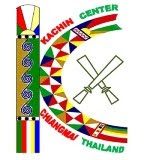The military-backed Burmese government announced its rejection of peace talks based on the principles of the 1947 Panglong Treaty to the Kachin Independence Organization (KIO) on the weekend, referring KIO officials Kachin News Group said.
KIO officials in Laiza said the five-month old President Thein Sein government declared clearly that it will only agree to peace talks with the KIO in accordance with the 2008 constitution. However, the KIO countered the government’s stance on Monday that it cannot talk under the guidance of the 2008 constitution which KIO did not recognized, according to KIO officials in Laiza.
A truce which lasted over 16 years between the two sides broken on June 9th when government troops hit the Kachin Independence Army (KIA) at Sang Gang, in Bhamo District, arguing it was defending the Taping (Dapein) hydropower Dam.
During the lengthy armistice phase, there were no political talks; however, the KIO and other ethnic ceasefire groups were pressured to transform their armed wings into the Burma Army-controlled Border Guard Force (BGF) or militia groups, after the controversial 2008 constitution was put in place.
Meanwhile, on August 18, seven Burmese soldiers were killed during fighting with the KIA at Wawang Kumbang, in Manmaw (Bhamo) District, Kachin News Group said. According to KIA officials from the Laiza headquarters, Burmese soldiers died in action were from Infantry Battalion No. 47, based in Manmaw, said sources close to government troops.
Lar Nan, Joint-General Secretary-2 of the KIO, said it will not talk bilaterally any more with the government since such negotiation failed in the past. Talks between the KIO and the Burmese government were also abortive in 1963, 1972, and 1980 respectively; though, they all failed to get to the bottom of the political standoff between the two sides.
Currently, KIO declared that it will talk through the ethnic alliance, the United Nationalities Federal Council (UNFC), keeping on the spirit of the Panglong Agreement.On August 15, in response to charges during August-12 press conference by information minister Kyaw Hsan, the Restoration Council of Shan State / Shan State Army (SSPP/SSA) issued a statement urging all parties concerned to revitalize the 1947 Panglong Agreement signed by the Burmese leader Aung San and leaders of the (then known as) Frontier Areas, Shan Herald Agency for News said.
SSPP/SSA says in its statement, “Instead of regarding ethnic peoples as enemies and accusing them as subversive elements, it’s high time national reconciliation was being forget by the present authorities on the basis of equality, justice and the Panglong Agreement.”The historic agreement basically guaranteed self-determination of the ethnic minorities and offered a large measure of autonomy, including independent legislature, judiciary and administrative powers. However, the dream of equality and a federal union is far from being realized some six decades after signing the Panglong Agreement.
According to some critics, the NLD led by Aung San Suu Kyi supports the Panglong Agreement and self-determination for every ethnic nationality while the President Thein Sein government strongly opposed it. Thus, various ethnic leaders emphasized that they don’t have confidence in the new 2008 constitution which abandoned the Paglong values.
On August 18, the government proposed joining in peace talks to ethnic armed groups. But, it was rejected by the KIO and the UNFC, because the government uses divide-and rule policy towards ethnic groups without considering the Panglong Agreement.The United Nationalities Federal Council (UNFC) has been founded during a conference held from 12 to 16 February 2011 involved 15 ethnic groups. The UNFC has selected six Central Executive Committee members and 10 Central Committee members. Gen Mutu Saypo of the Karen National Union (KNU) becomes Chairman and Lt Gen Gauri Zau Seng of the Kachin Independence Organization (KIO) Vice Chairman-1, Maj Gen Abel Tweed of the Karenni National Progressive Party (KNPP) Vice Chairman-2, and Nai Hongsa of the New Mon State Party (NMSP) General Secretary) respectively.
In a statement issued on last 17 February, the UNFC said part of its basic principles and aims are to work for a better recognition of the ethnic armed groups, for ethnic equality, rights and self-determination, and for a genuine democratic federal Union of Burma.
Successive governments rejected the political dialogue with ethnic armed groups, which demand self-determination and a genuine federal union, for over six decades. If the President Thein Sein government stubbornly refused to honor the Panglong accord, the ongoing civil-war in Burma may not stop in a short period.However, President Thein Sein told members of parliament on 22 August, at the first Union Parliament second regular session, that his government will pay attention to oppositions’ suggestions. He said the government has already prepared to talks on peace with armed ethnic groups since the progress of the frontier areas is dependent on stability.
The whole nation is cautiously watching the current political disaster with the ethnic people whether the president will take responsibility of his latest parliament speech.
Source : http://asiancorrespondent.com/author/uzinlinn/






No comments:
Post a Comment